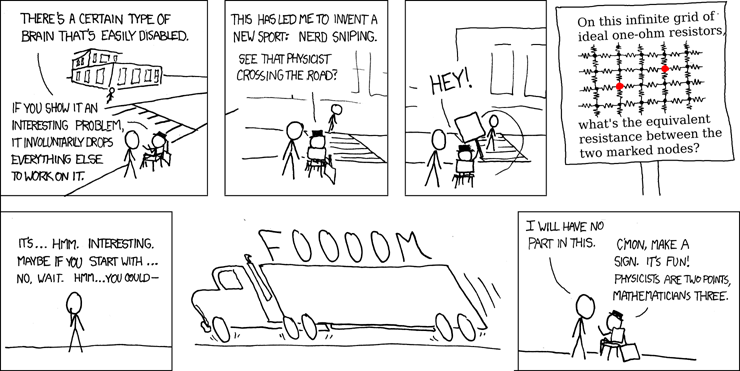Lessig and Lemley also introduce an argument that seems to me to be fundamentally in tension with their broader end-to-end thesis:
One should not think of ISPs as providing a fixed and immutable set of services. Right now ISPs typically provide customer support, as well as an IP address that channels the customer’s data. Competition among ISPs focuses on access speed, as well as some competition for content. AOL, for example, is both an access provider and content provider. Mindspring, on the other hand, simply provides access. In the future, however, ISPs are potential vertical competitors to access providers who could provide competitive packages of content, or differently optimized caching servers, or different mixes of customer support, or advanced Internet services. This ISP competition would provide a constant pressure on access providers to optimize access.
I don’t agree with this, and indeed, I don’t think Lessig himself agrees with this any longer, although that may be a consequence of today’s less-competitive ISP marketplace. But it seems to me that the end-to-end principle does imply that we should “think of ISPs as providing a fixed and immutable set of services”: namely, moving bits from point A to point B without doing much else. While there’s nothing intrinsically wrong with an ISP offering other services besides that, the division of labor would seem to suggest that it’s generally going to work better for ISPs to offer basic service and third parties to provide caching, content, or “advanced Internet services.”
And indeed, that’s what has happened. Akamai, for example, was in its infancy when L&L were writing their paper. In the last seven years the company has thrived, despite the trend toward vertically integrated residential ISPs. By the same token, ISPs still provide their customers with email and web services, but it’s become far more common for users to bring their own email access and find third parties (including Flickr, Blogger, and YouTube) to host their web content. Even DNS, long considered core functionality of an ISP, is increasingly being offered by third parties.
Most dramatically, with AOL’s transition to being just another web portal, the business model of ISP-as-content-provider has completely collapsed. Hardly anyone now believes that it makes sense for your ISP to be a major provider of Internet content. ISPs should be competing on the basis of their ability to bring the cornucopia of content already on the web to you as efficiently as possible, not on their ability to provide an inevitably meager quantity of exclusive content on top of basic Internet access.
This probably wasn’t as obvious in 2000 as it is today. I haven’t seen Lessig or Lemley specifically address the point, but given Lessig’s enthusiastic embrace of network neutrality regulation (which is based on the implicit premise that ISPs shouldn’t be more than a “dumb pipe”), I would bet he’d concede that value-added ISPs aren’t as promising a concept as they appeared a decade ago.


 Today, CEI released a new paper by my colleague Eli Lehrer and me. The study, entitled Politically Determined Entertainment Ratings and How to Avoid Them, covers how we rate television, radio, comic books, movies, music, and video games. After studying the evolution of the ratings system for each medium, the report makes the following recommendations:
Today, CEI released a new paper by my colleague Eli Lehrer and me. The study, entitled Politically Determined Entertainment Ratings and How to Avoid Them, covers how we rate television, radio, comic books, movies, music, and video games. After studying the evolution of the ratings system for each medium, the report makes the following recommendations: The Technology Liberation Front is the tech policy blog dedicated to keeping politicians' hands off the 'net and everything else related to technology.
The Technology Liberation Front is the tech policy blog dedicated to keeping politicians' hands off the 'net and everything else related to technology.